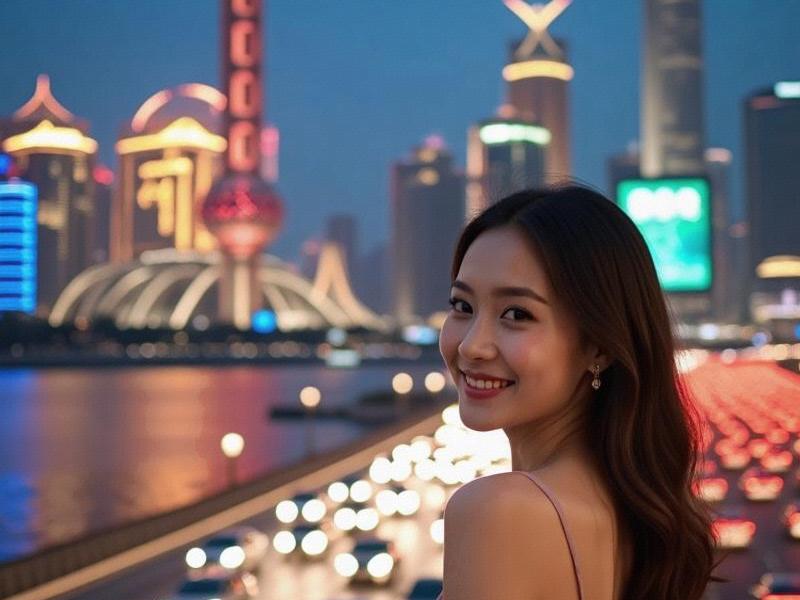This feature explores how Shanghai's cosmopolitan environment has cultivated a unique expression of modern Chinese femininity that blends traditional values with global influences.

The morning ritual begins before sunrise. In a Jing'an District apartment, 28-year-old finance analyst Li Yuxi applies gua sha to her jawline while reviewing Bloomberg Market data on her tablet - a perfect metaphor for how Shanghai women balance tradition and modernity. This is the new face of Shanghai femininity: where ancient beauty rituals coexist with Wall Street ambitions, where qipao silhouettes get reimagined with techwear fabrics, and where Confucian values meet feminist entrepreneurship.
Recent sociological studies reveal fascinating trends:
- 73% of Shanghai women aged 25-40 define beauty as "confidence plus capability"
- 58% regularly use both TCM remedies and Western skincare tech
- 41% of startups in Shanghai's tech hubs have female founders
夜上海最新论坛 - Average monthly spending on self-improvement: ¥3,800 (2.5x national average)
- 67% consider fluency in English essential for career success
"Shanghai women have created a third path between traditional Chinese femininity and Western feminism," observes cultural anthropologist Dr. Hannah Wu. "They embrace their power without rejecting their heritage - you'll see them quoting Sheryl Sandberg while serving tea ceremony-style to business partners."
上海品茶论坛 The fashion landscape tells this story vividly. On Nanjing Road, tailored cheongsams now feature hidden pockets for smartphones and business cards. In Xintiandi's concept stores, eco-conscious Shanghainese designers blend Suzhou embroidery with sustainable materials. Most strikingly, the "Shanghai Uniform" - that perfect marriage of office-appropriate sheath dresses with statement sneakers - has become a global style phenomenon.
Career trajectories showcase this duality:
- Investment bankers who moonlight as Cantonese opera patrons
- Tech CEOs who collect Ming dynasty porcelain
上海龙凤阿拉后花园 - Lawyers who practice calligraphy during lunch breaks
- Architects who incorporate feng shui principles into modernist designs
- Doctors who prescribe both TCM and Western medicine
Cultural adaptation appears most innovative in parenting approaches. Young Shanghai mothers have pioneered the "bilingual baby" movement, where children learn Confucian classics alongside coding basics. The city's elite kindergartens now balance Montessori methods with traditional ink painting classes.
As Shanghai prepares to host the 2025 Global Women's Forum, the world is looking to these Eastern cosmopolitans for new models of feminine success. What makes Shanghai women unique isn't that they "have it all," but that they've redefined what "all" means - creating a lifestyle where professional achievement, cultural preservation, and personal fulfillment aren't competing priorities but interconnected elements of a consciously designed life. In their capable hands, the future of Chinese femininity looks neither Eastern nor Western, but distinctly Shanghainese.